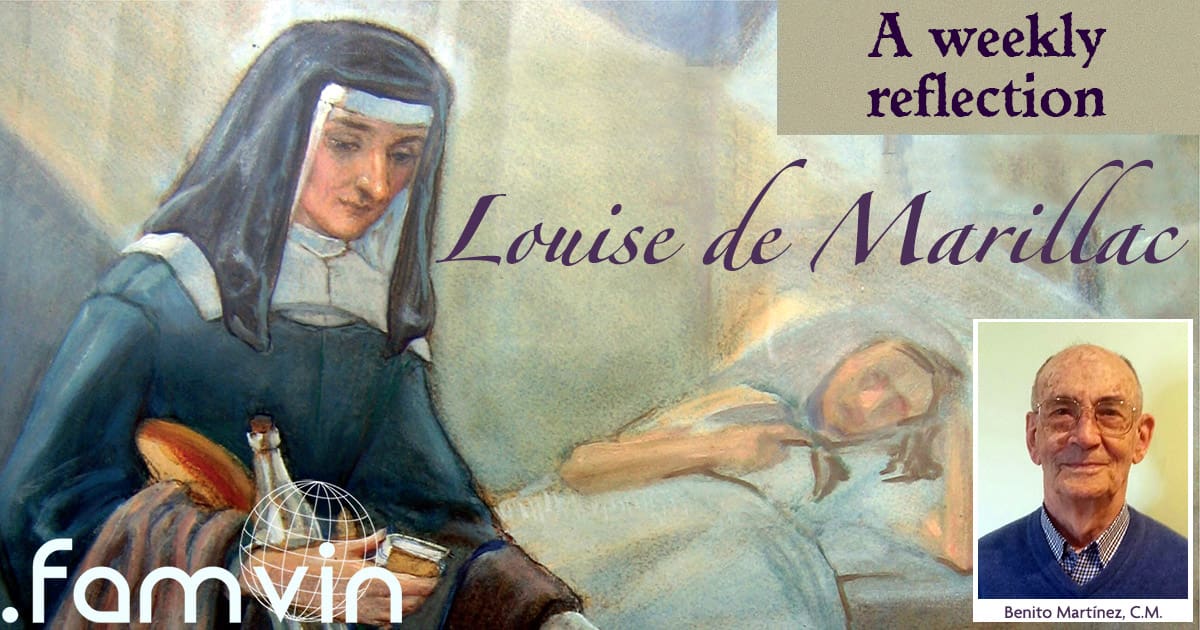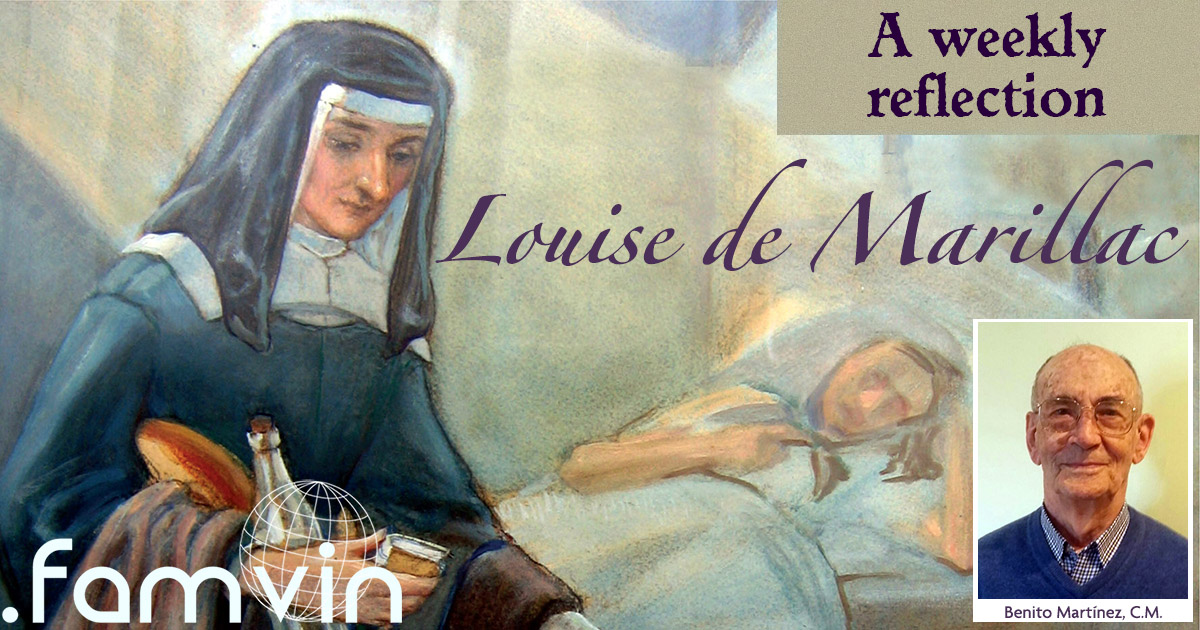The Holy Trinity, the Group Standard • A Weekly Reflection with Louise
At 59, Saint Louise had the illusion and energy to send Daughters of Charity to the distant Hennebont, in French Brittany. She was afraid that, by living so far from Paris, the community would relax and disappear. In this letter thery are told that only if they live together will they survive.
“In the name of God, I beg you, in your first conference, to reflect on the fact that there are three of you together and that you must honor the Blessed Trinity by this number. But how exactly? It is by the great union which must exist among you, by deferring to one another so as to avoid contention and by acquiescing, as far as possible, to one another’s opinions. If occasionally they differ, remember, my dear Sisters, that Our Lord always deferred to the will of His Father. In that way, you will, as it were, honor this deference when, for love of Him, you sacrifice your opinion to follow that of the Sister Servant. She can act in like manner in matters in which neither God nor the neighbor will be offended.” (l. 429).
Saint Louise.
Reflection:
- It is delightful to see how Louise de Marillac, at the end of her life, wants to live a spiritual life centered on the Trinity and the Holy Spirit. And in a Spiritual Exercises, when she was 66, in the last sentence, she meditated: “O Trinity perfect in power, wisdom, and love! You bring to completion the work of founding the Holy Church. You desire her to be the Mother of all believers. To this end, You console her by instructing and strengthening her in the truths which the Incarnate Word had taught her. You infused into this Mystical Body the union of your works, giving her the power to perform miracles so as to enable her to bring to souls the true witness which You willed her to bear to,Your Son. You operated in them holiness of life by the merits of the Word Incarnate. The Holy Spirit, by means of His unitive love, associates Himself to this action in order to produce the same effects by His coming. He thus renders to men the proof of the divinity and perfect manhood of Christ which should be for all a source of joy,emulation, and true detachment from worldly affections so as to form oneself according to flis holy and divine actions which should lead to the resolution to live as reasonable human beings. This is what all Christians must do, bythe perfect actions of true Christians.” (A 26).
- From this teaching, the main consequence is that the sisters live together in community and this provides the means to achieve it. In today’s world, authentic communities are needed to live unity; these are united communities where the sister feels at ease and happy to undertake the service. In this society dominated by individualism, where marriage or family unity is sometimes no longer lived, united communities can be the model that people expect.
- It can be applied to all groups that live and work to achieve the same material or spiritual purpose. Among these are the Vincentian branches that strive to implant the Kingdom of God among the poor. By joining the group you put your qualities, skills and ability at its service. To these qualities God gives them his grace, a charism, to give life to the group. If each member considered that their qualities are clothed with a divine charism for the union of the group, all would live happily. Which means that there is unity and uniqueness, but not uniformity.
Questions for dialogue:
- Do you know your own role and place in the group?
- Do you lose your personality and accept everything that others propose only because they are people with prestige, or of strong character?
- Are there any in your group with social skills to win friends to help them gain power? Are there any members in your group who feel the pain of not being able to decide, since others already do it for them?
- Is there singularity, but not uniformity?
Benito Martínez, C.M.








0 Comments